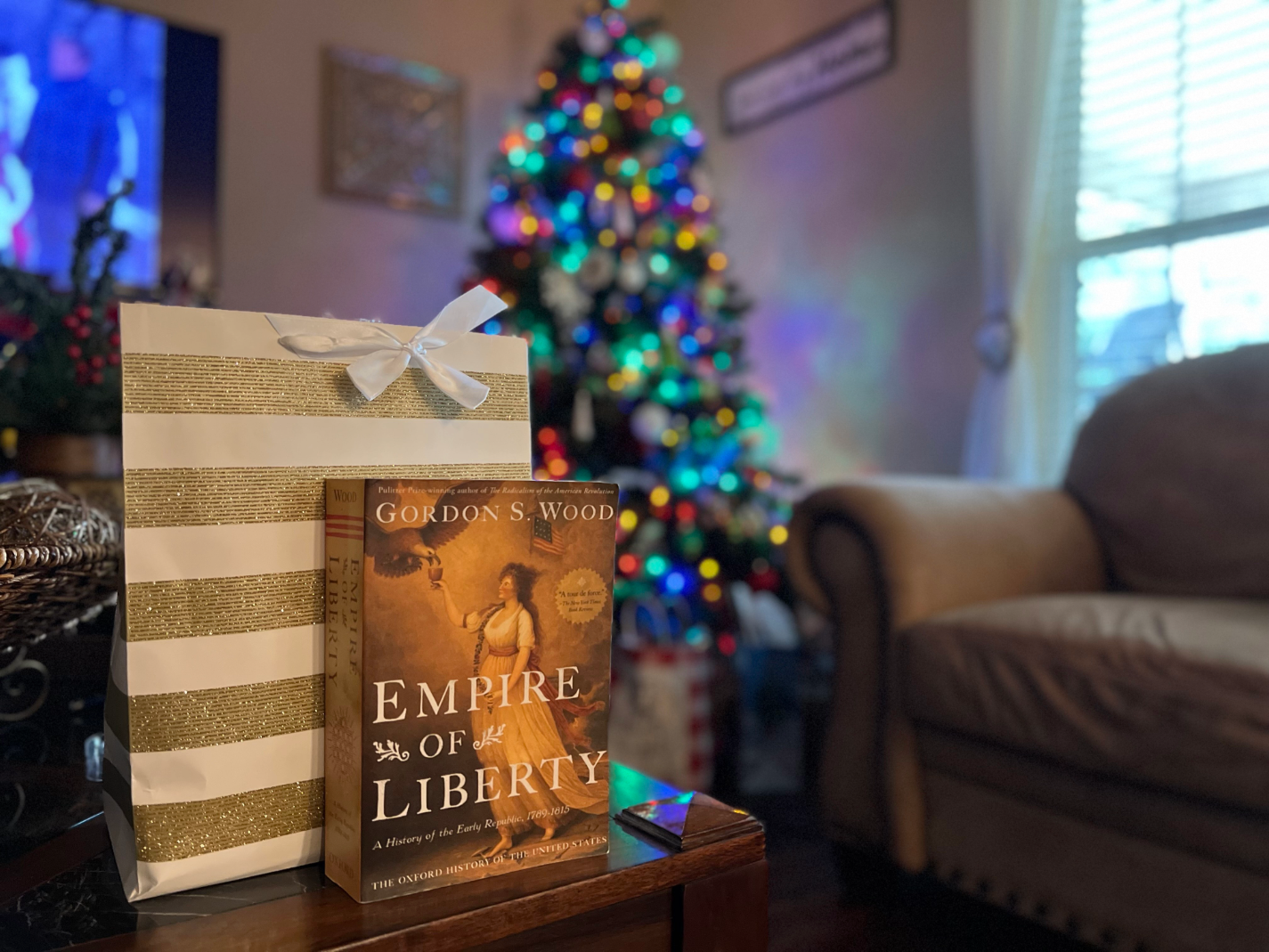
Author’s Note: This excerpt is from my weekly “Top of Mind” email, sent to subscribers every Thursday. For more content like this and to receive the full newsletter each week, sign up on Minding the Campus’s homepage. Simply go to the right side of the page, look for “SIGN UP FOR OUR WEEKLY NEWSLETTER, ‘TOP OF MIND,’” and enter your name and email.
I hope you had a wonderful Christmas. If you didn’t quite get everything you wanted, I offer you this: a curated book list. Whether you’re in the mood for gripping fiction, historical insights, or thought-provoking analysis, our team has you covered.
First on the list is Blood Meridian by Cormac McCarthy, recommended by my colleague Chance Layton.
I’m not one for fiction, but the novel does sound intriguing. The story follows a teenage runaway known only as “the kid,” born in Tennessee during the Leonids meteor shower of 1833. Early on, he crosses paths with the towering, hairless Judge Holden at a revival meeting in Nacogdoches, Texas. There, the Judge stirs chaos by falsely accusing the preacher of unspeakable crimes, whipping the crowd into a violent frenzy.
Now, since I haven’t read it myself, I can’t vouch for the rest of its gory details, but it’s regarded as one of the greatest novels written this past century.
[RELATED: 7 More Recommended Books for College Common Reading]
Glenn Ricketts takes us further back in time with his recommendation of David Hume’s The History of England. This six-volume opus covers English history up to the Glorious Revolution and, according to Glenn, stands alongside Edward Gibbon’s The Decline and Fall of the Roman Empire as one of history’s literary masterworks. Glenn does warn that it’s a bit partisan on Scotland’s relations with the Crown, but that will only add to the drama.
David Randall brings us a smorgasbord of suggestions. For Victorian sentimentality, he recommends George Eliot’s Silas Marner—perfect for those who’ve already revisited A Christmas Carol. For academic humor, he suggests Kingsley Amis’s Lucky Jim. Randall describes it as a brilliantly sharp comedy about life in academia. And, Elmer Kelton’s The Time It Never Rained transports readers to drought-stricken 1950s Texas. Randall says it captures the resilience of the American character.
Not done, he also recommends Masters of Russian Music by Gerald Abraham and M.D. Calvocoressi. To Randall, it’s a sparkling exploration of Russian composers, complete with anecdotes about Tchaikovsky nervously chewing paper and Scriabin embodying the eccentricities of Russian literature. And, for something lighter, he suggests Arturo Pérez-Reverte’s Captain Alatriste, a swashbuckling modern Spanish adventure with a nod to the Three Musketeers.
[RELATED: Students Are Unprepared to Read Books]
My colleague Ian Oxnevad also contributes two thoughtful entries.
Sylvia Nasar’s Grand Pursuit: The Story of Economic Genius, he says, explores why wealth creation—far from being Scrooge-like—actually underpins charity and generosity. For something more theological, he recommends Athanasius of Alexandria’s On the Incarnation, a meditation on Christ’s birth and its ties to Old Testament wisdom—you can also see this week’s top article for more on Christ’s birth if you’re interested.
As for rounding out this list, I’ll be revisiting Gordon Wood’s Empire of Liberty, a book I first read in college but lost somewhere along the way. Wood’s detailed examination of early America’s ideological foundations—the balancing act between republican ideals and the practical challenges of governance—offers a lens into the roots of today’s political and cultural struggles. My return to Wood’s work feels timely; his insights into the tensions between individual liberty and federal power offer a valuable backdrop as I delve deeper into editing our American Revolution series.
Not done.
I plan to dive into Black Flags: The Rise of ISIS by Joby Warrick, which Layton recommended to me earlier this year. I expect it to be a gripping account of the group’s origins and the geopolitical failures that fueled its rise. On my list, too, is Diversity: The Invention of a Concept by National Association of Scholars President Peter Wood, which critiques the modern fixation on diversity and its effect on institutional priorities. And, by year’s end, I also aim to finish Patrick Deneen’s Why Liberalism Failed, a compelling argument that liberalism’s emphasis on autonomy and individualism ultimately undermines the common good—a perspective becoming increasingly adopted by members of the political right, including yours truly.
If your book stack isn’t towering like a Christmas tree just yet, may this list help you build a few more branches. Now, I wait for New Year’s.
Follow Jared Gould on X
Image by Jared Gould—Empire of Liberty, a Christmas gift.

Classics relevant today — Allen Bloom’s classic Closing of the American Mind(1987) and George Orwell’s 1984 (1948)